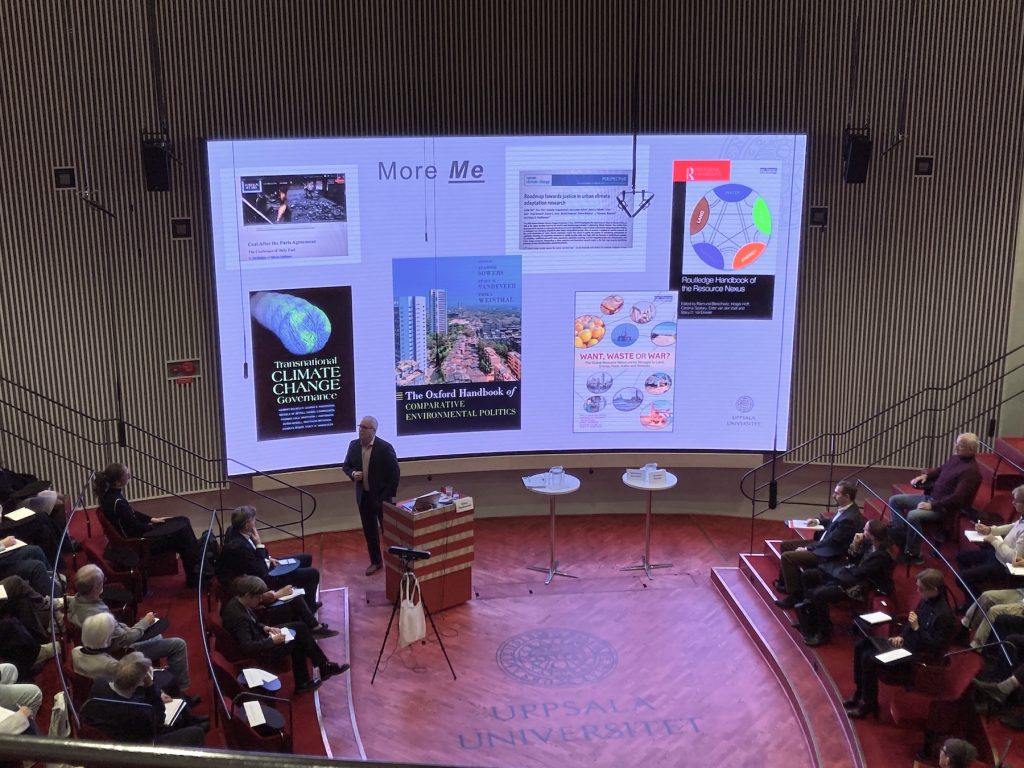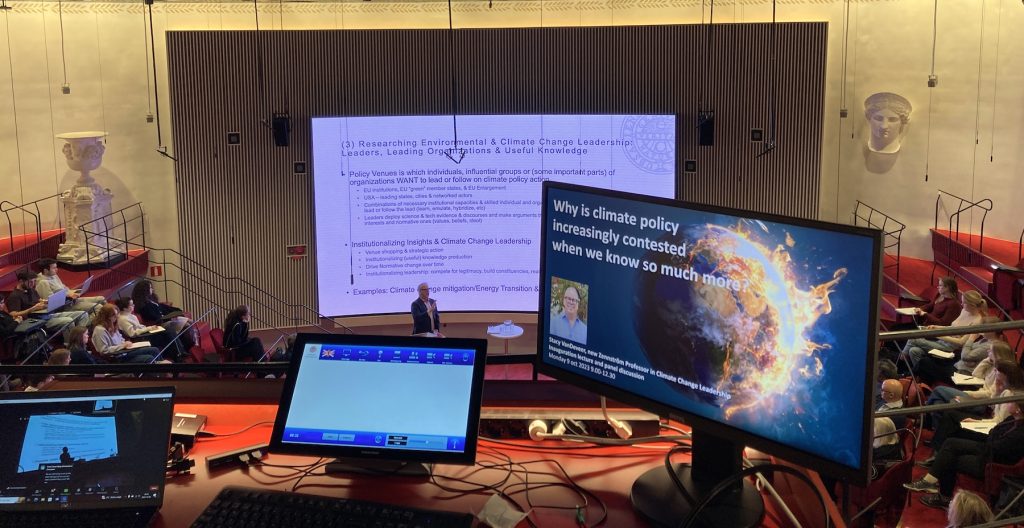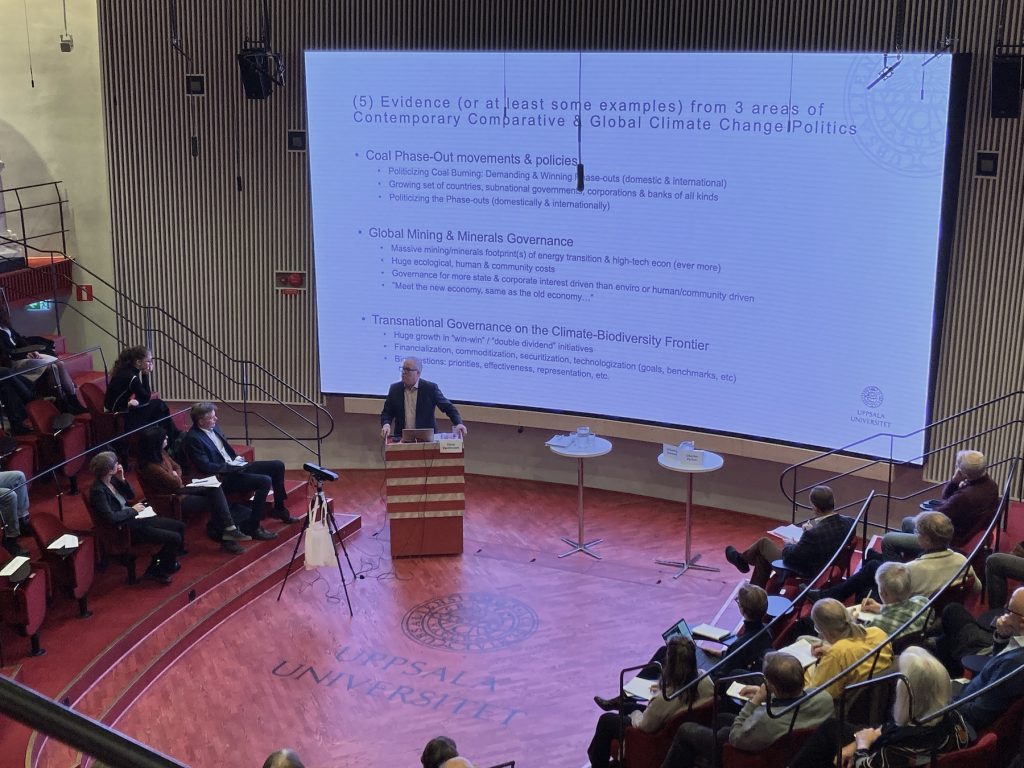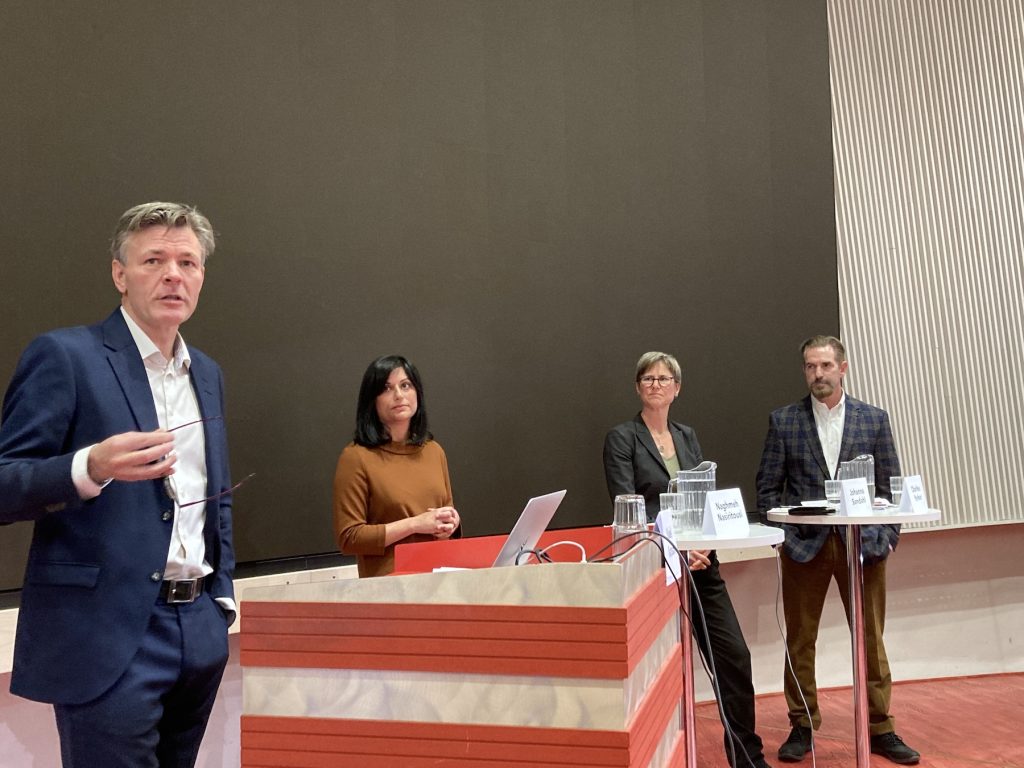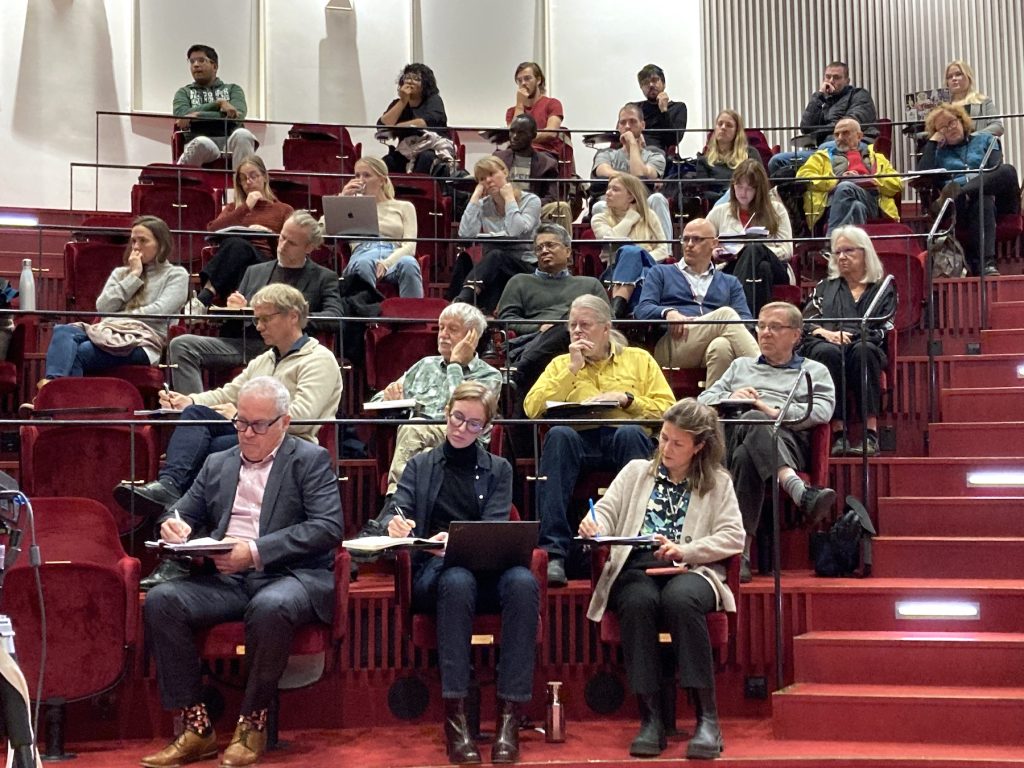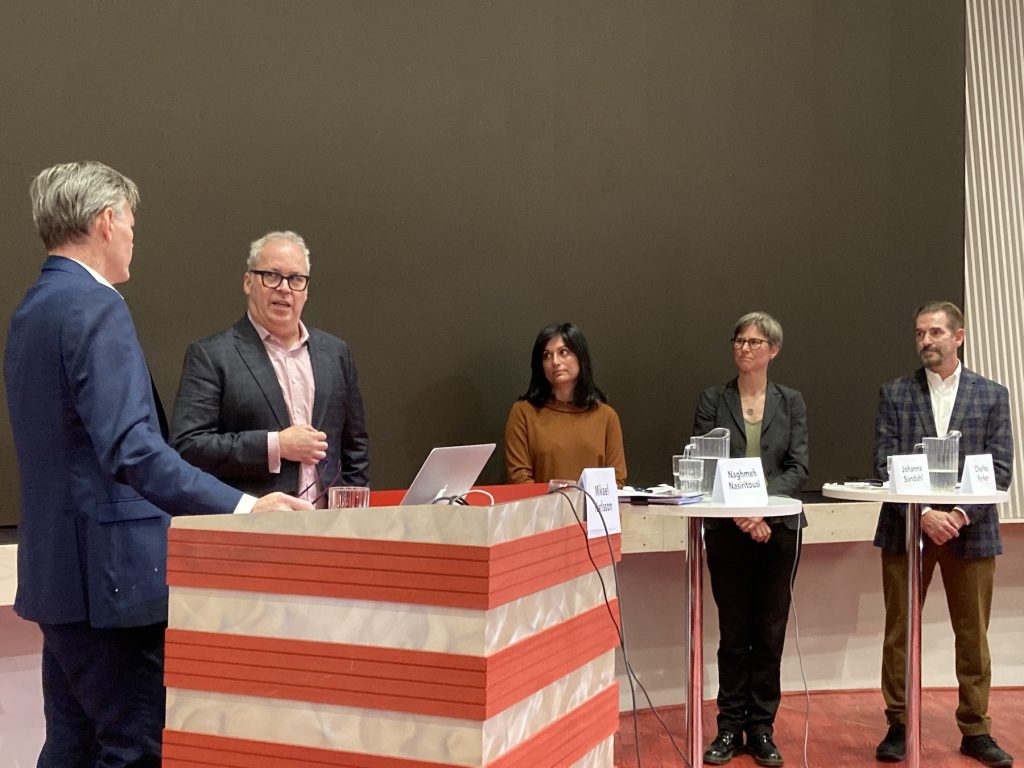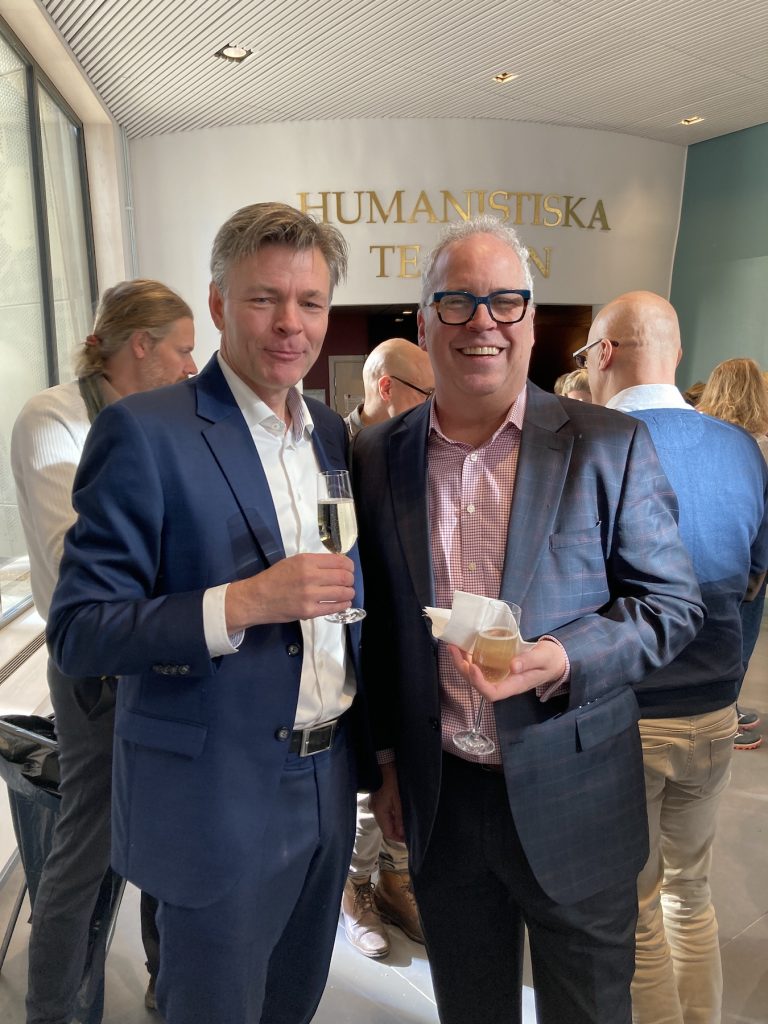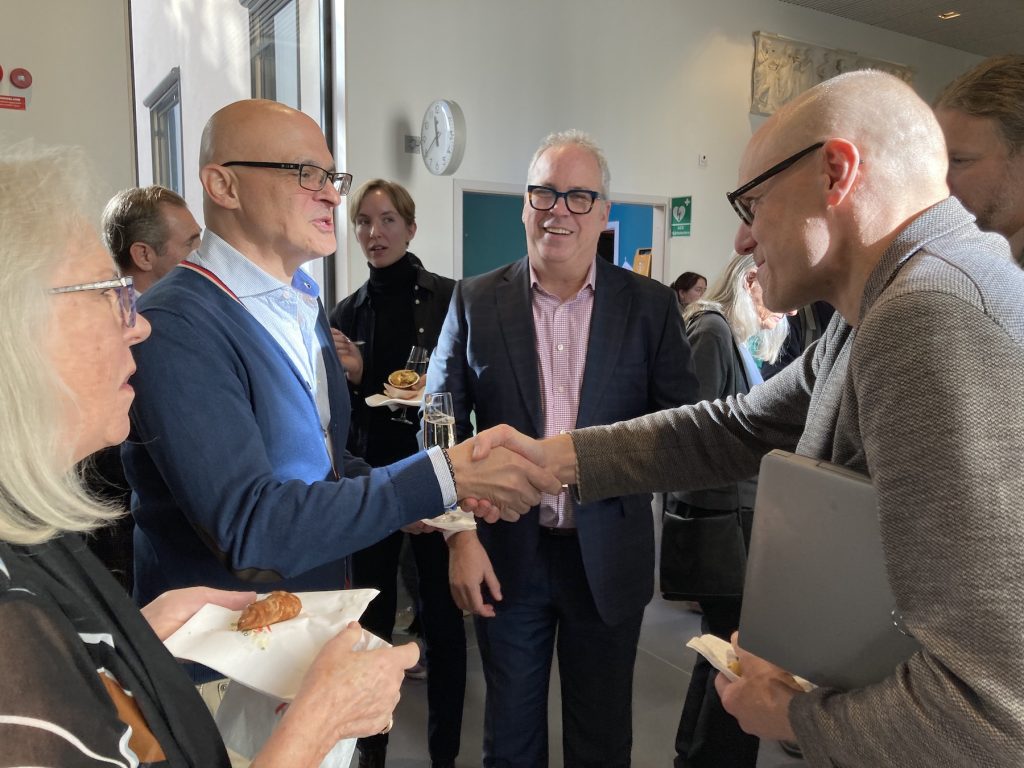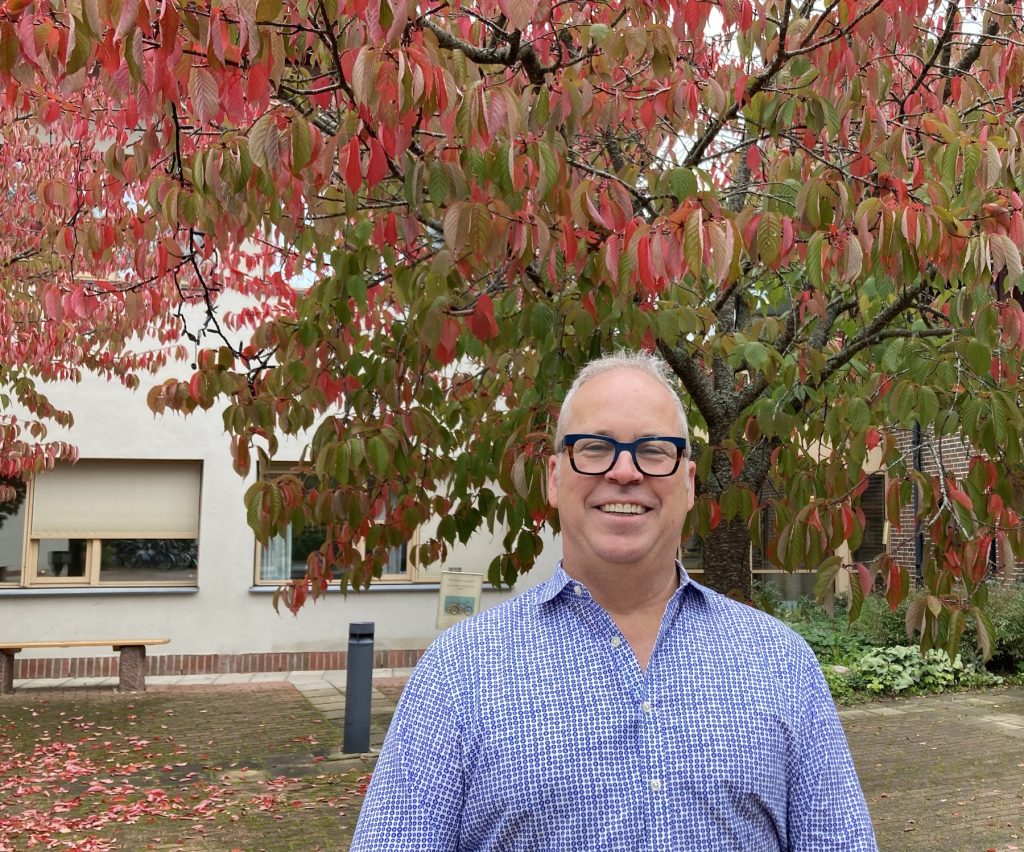Klimatledarskap: från vetenskap och teknik till rättvis policy för att klara samhällsmål för klimat och biologisk mångfald (5hp)
COURSE INFORMATION
Language of instruction: English
Course period: Spring 2024
Course structure: Campus teaching, Uppsala University
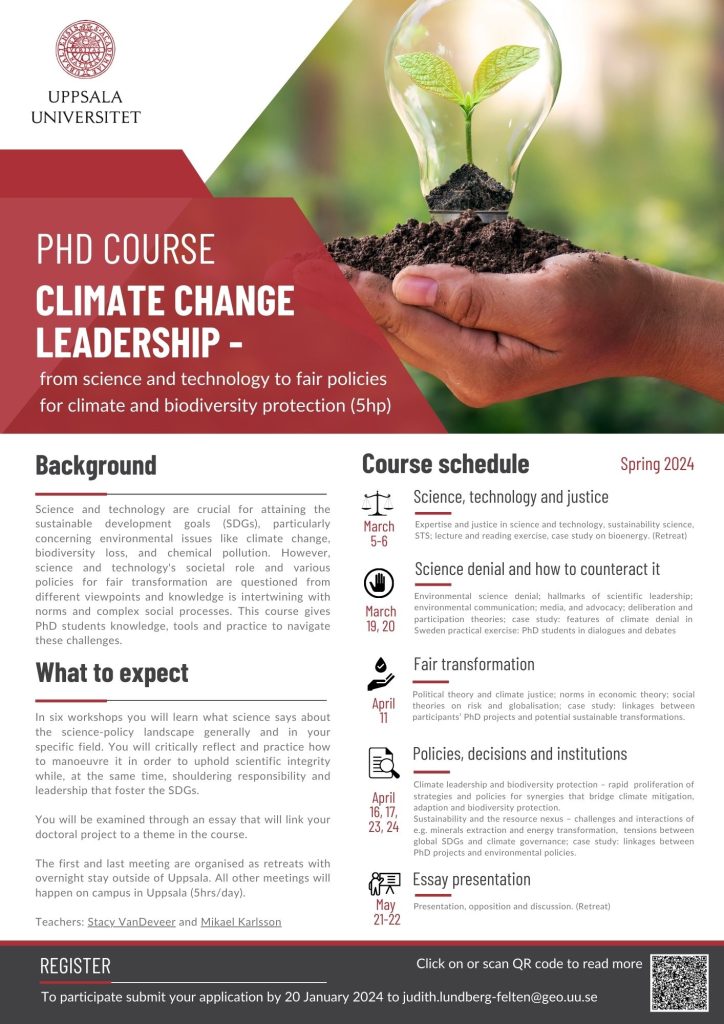
RECOMMENDED PREREQUISITES
One year of doctoral studies when the course starts is recommended.
LEARNING OUTCOMES
Upon completion of the course participants should be able to:
- account for how knowledge about science and technology may be used in fair policy-making, for the roles of science-based advice, and the interactions between science and norms;
- account for how science denial and various advocacy actors may influence research, researchers, the public understanding of science, and policy processes;
- demonstrate familiarity with ways and means for scientists to shoulder leadership for mitigating and counteracting science denial in communication and science-based advise;
- analyse and critically discuss political, economic and social instruments and their synergies and barriers for climate change mitigation and biodiversity protection;
- analyse and critically discuss leadership, policy-making and policies for achieving public goals for at least climate change mitigation, biodiversity protection and chemicals management and resource use
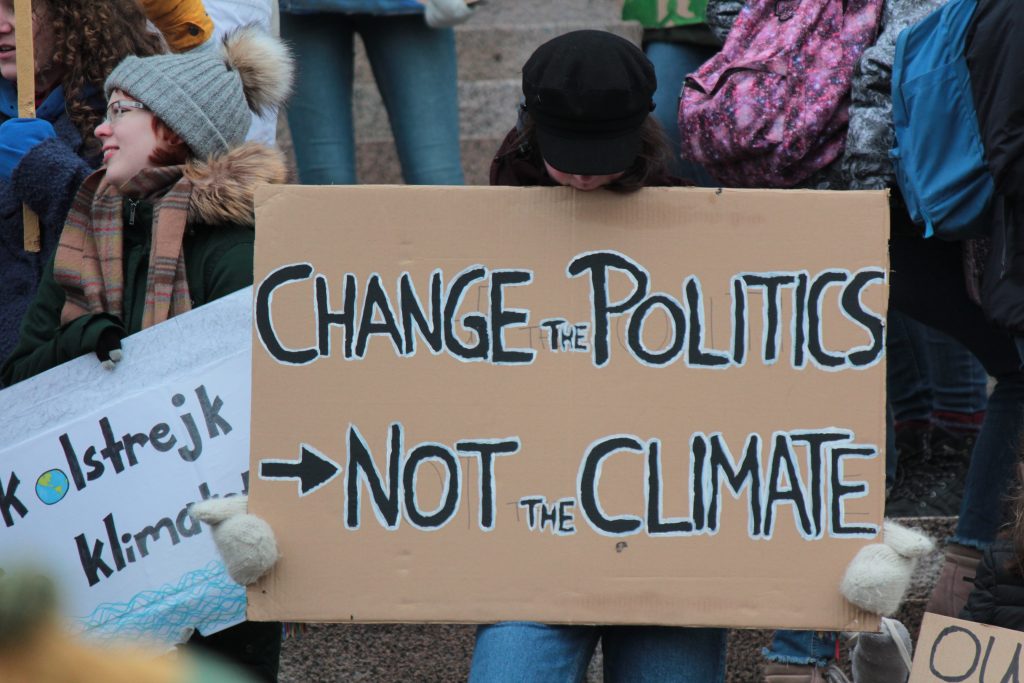
LEARNING OUTCOMES FOR DOCTORAL DEGREE
The course promotes at least the examination goals A1 (by offering in-depth application of the course content in an essay linked to a theme of the doctoral project), B1 and B2 (critical assessment of emerging new and complex topics), B6 (societal development and the learning of peers), and C2 (the role of science in society).
COURSE CONTENTS
Science and technology play a fundamental role for the achievement of the sustainable development goals, not least when it comes to environmental objectives linked to e.g. climate change, biodiversity loss and chemicals pollution. However, the role of science and technology in society, as well as various policies for fair transformation, are questioned from different viewpoints and knowledge always interacts with norms in complex societal processes. Senior scientists as well as PhD students often stand in the middle of this. They would consequently benefit from enhanced awareness of what science says about the science-policy landscape generally and in their specific fields, and from critical reflections and practice on how to manoeuvre in order to uphold scientific integrity while at the same time shouldering responsibility and leadership that foster sustainable development goals.
On this basis the course is organised around six workshops with lectures, seminars and practical exercises at campus focusing on the following themes, content, theories and practical skills:
- I: Science, technology and justice: Expertise and justice in science and technology, sustainability science, STS; lecture and reading exercise, case study on bioenergy (2 days, 10 hours, March 5-6, outside of Uppsala with overnight stay*).
- II: Science denial and how to counteract it: Environmental science denial; hallmarks of scientific leadership; environmental communication; media, and advocacy; deliberation and participation theories; case study: features of climate denial in Sweden practical exercise: PhD students in dialogues and debates; (2 days, 10 hours, March 19-20, Uppsala, on campus)
- III: Fair transformations: Political theory and climate justice; norms in economic theory; social theories on risk and globalisation; case study: linkages between participants’ PhD projects and potential sustainable transformations. (1 day, 5 hours, April 11, Uppsala, on campus)
- IV: Policies, decisions and institutions, Part I: Climate leadership and biodiversity protection – rapid local, national and global proliferation of strategies and policies for synergies that bridge climate mitigation, adaption and biodiversity protection. Part II: Policies, decisions and institutions: Sustainability and the resource nexus – challenges and interactions of e.g. minerals extraction and energy transformation, and the tensions between global SDGs and climate governance; case study: linkages between PhD projects and environmental policies. (4 days, 20 hours for Part I and II, April 16-17 and April 23-24, Uppsala, on campus )
- V: Presentation of essays: Course participants will be examined through an essay that will link each participants’ doctoral project to a theme in the course. Presentation, opposition and group discussions. (2 days, 10 hours, May 21-22 outside of Uppsala with overnight stay*)
*board and loging costs on retreat days are covered
Students will invest additional time (ca 2 weeks worktime) for reading and preparation of cases and their essay and presentation.
INSTRUCTION
The course is transdisciplinary and consists of six workshops (of which three are two day-gatherings), each comprising a combination of lectures and seminars with case scenarios in which the students will link knowledge to their own area of research to the course themes. Lectures are given and seminars are supervised by the new Uppsala University Zennström Professor in Climate Change Leadership, other senior lecturers and researchers at CCL and NRHU, and guest lecturers from other universities in Sweden and beyond (the latter online). Ample opportunities are provided for active student participation and critical reflection. Participation in seminars and lectures is compulsory.
ASSESSMENT
Each student is assessed through a written essay.
COURSE EXAMINER
Zennström Visiting Professor, Stacy VanDeveer, stacy.vandeveer@geo.uu.se
DEPARTMENT WITH MAIN RESPONSIBILITY
Department of Earth Sciences
CONTACT PERSON/S
Associate Professor Mikael Karlsson, mikael.karlsson@geo.uu.se
APPLICATION
Submit the application for admission to: judith.lundberg-felten@geo.uu.se
Submit the application not later than: 20 January 2024

